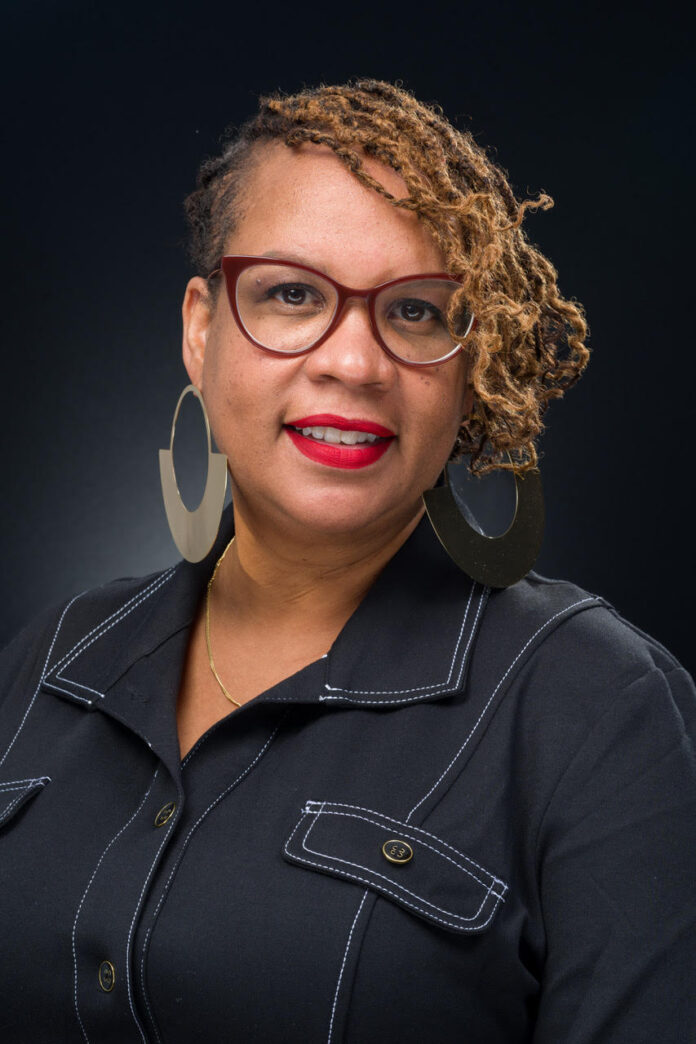
By Kellie Todd Griffin, Special to California Black Media Partners
California prides itself on its progressive values and its commitment to diversity and inclusion. However, the economic disparities that Black women face in the state present a troubling contradiction to this self- image. With more than 1 million Black females living in the golden state, which is the 5th largest population in the country, it is important to cast a light on the inequities that we face. The data speaks volumes: Black women are systematically underserved and undervalued, challenged by wealth gaps, high poverty rates, and substantial economic burdens.
Consider the stark wealth gap: Black women hold a mere 10% of the wealth of their White male counterparts, with a median wealth of only $6,000. This is the lowest among all racial and gender groups in California. Moreover, when it comes to earnings, Black women make just 57 cents for every dollar that White, non-Hispanic men earn, according to the Status of Women in California report produced by Mount Saint Mary’s University – Los Angeles. Black Women would have to work an additional 30 years (91 years old) to make what a White man makes at the age of 64. It will only take White women 10 additional years. This disparity is not just an injustice but a stain on our state’s reputation, reflecting a gap as severe as those seen in the most economically divided regions of the country.
The economic obligations that Black women shoulder are overwhelming. They spend up to 50% of their income on housing and nearly 30% on childcare, far more than any other demographic. This dynamic is elevated with 67% of Black Californian households being headed by single mothers, which is highlighted in the California Black Women’s Collective Empowerment Institute’s Pay Me What I Am Worth, Black Women’s Wages Report.
Despite educational achievement, Black Women still find themselves making less than their White and Asian female counterparts with the same education. These expenses cripple their ability to save, invest, or gain economic stability, perpetuating a cycle of poverty and financial insecurity.
The Federal Reserve Bank states homeownership rate among Black Californians is notably lower than that of other racial groups. As of the latest data, it stands at approximately 36.8%, which is significantly below the rate for White households in the state. And Black women in California face significant housing challenges, particularly in the rental market. They are disproportionately impacted by high rental costs, which often leads to a higher likelihood of facing eviction and an increased experience of being unhoused with their children. In fact, 60% of Black women renters are cost-burdened, meaning they spend at least a third of their income on housing.
Black women in California face the highest unemployment rates among women at over 6%. They are also disproportionately represented in low-wage service jobs and markedly underrepresented in managerial or professional roles, compared to their White and Asian peers. Black Women only represent 4% of executive positions in the top 100 companies in California.
Educational attainment further complicates this picture, with only 13% of Black women holding a least a bachelor’s degree, which only represents 4% of all women. According to a projection by the Public Policy Institute of California, by 2030, about 38% of jobs in the state will require a bachelor’s degree.
The entrepreneurial landscape is no more encouraging. Black women own just 7.7% of women-led businesses in California, and these are predominantly micro-enterprises, which limits their economic impact. It is harder to secure financing and investment from traditional and non-traditional avenues.
Healthcare access is yet another hurdle. One out of three Black women delays medical care due to the prohibitive costs, and a majority report significant challenges related to inflation and systemic discrimination.
Economic disparities significantly impact the health of Black women. Many Black women are employed in low-wage jobs that do not offer employer-sponsored health insurance, which exacerbates their health vulnerabilities. This lack of coverage often leads to skipped medications and unmet medical needs.
In addition, Black women often face barriers that complicate their pregnancies and birthing experiences resulting in a three times higher mortality rate when trying to have children.
The picture is not always gloomy. Black Women have seen thrives in the political front. We have more than 100 Black Women serving in elected office throughout the state and at various levels. California leads the nation with four Black Women in Congress (although that will change after the November elections).
The roadmap to improving the lives and health of Black women must include closing the wage and wealth gap; supporting entrepreneurship with tailored financial and mentorship support to foster scalable, sustainable business ventures; expanding educational opportunities through scholarships and targeted support programs to address the unique challenges faced by Black females from Pre-K to higher education; improving health access by focusing on barriers to access to high quality care without causing financial hardship; and addressing housing affordability with specialized housing assistance programs particularly for single income families.
The time for real change is now. The state of California, along with its educational institutions, businesses, and community organizations, as well as policymakers, philanthropy and labor must collaborate to dismantle the barriers that Black women face. Investing in Black women is investing in the future of California, promoting a prosperous, fulfilling life for all its residents.
Kellie Todd Griffin is the President & CEO of the California Black Women’s Empowerment Institute. To find out more about its work, go to www.CABlackWomenCollective.org.

